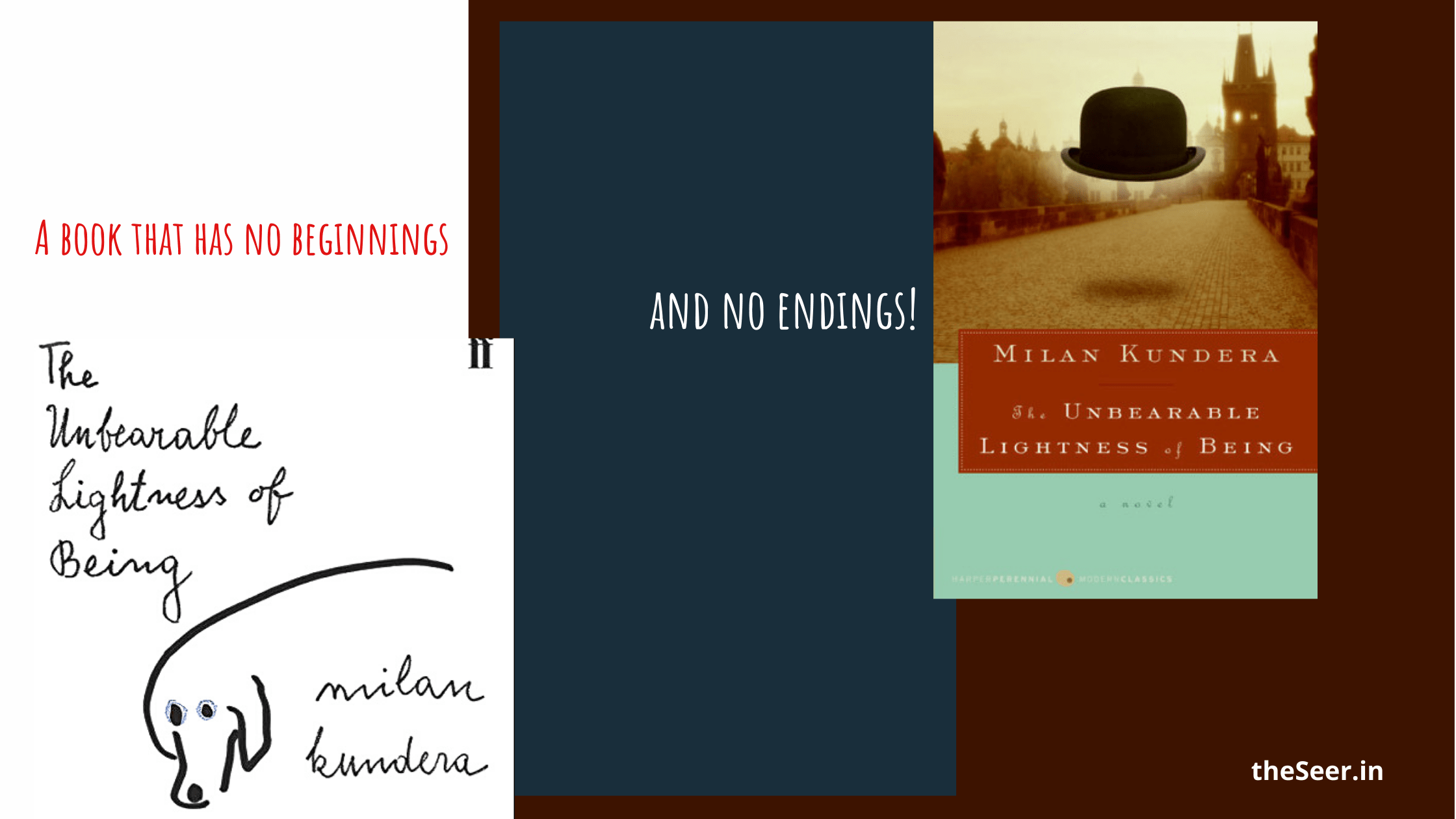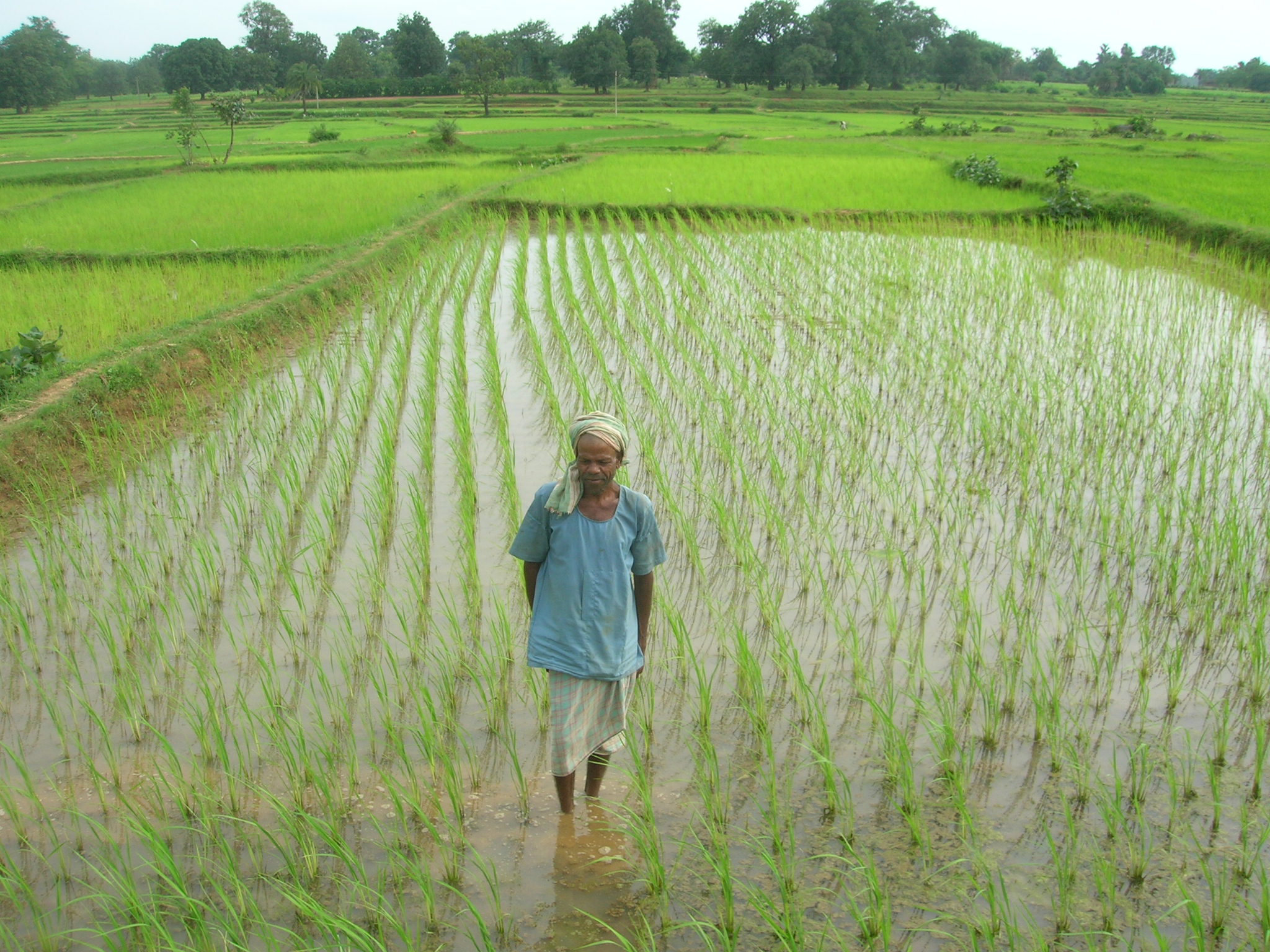It was a long and stirring affair. It lasted longer than I intended it to, but I wouldn’t have it any other way. It was a whole new experience, something I have never had in all these years. During these 8 months, I tried to be more loyal than I ever was. People told me I would feel that way with Ayn Rand, but it had to be Milan Kundera. I deliberately misplaced my bookmarks so that I could re-read some of those chapters again. At one point, I dropped the bookmarks and started reading again from wherever I wanted to. Even after all re-reading, ‘The Unbearable Lightness of Being’ never stopped amusing me with its philosophical speculations. Even as I write this, I look at my bedside table and see that the book still refuses to leave my side. Was it because Kundera challenged Nietzsche in the very first chapter of the book or is it because he named the pet dog, ‘Karenin’ after Anna Karenina or was it the scene of Tomas standing at the window of his flat looking across the courtyard at the opposite walls? It must be all of it.
The book takes you through the lives of four people – Tomas, Tereza, Sabina and Franz and of course, there is Karenin too. Although Kundera seemed to portray Tomas as the protagonist, I wasn’t entirely convinced he was. One moment it is Tomas, the next it is Sabina, a lot of times it happens to be Tereza and at times, Oedipus too. I can’t begin to explain how beautifully these characters are built around a changing political landscape. It is unbelievable that Kundera could convince you that it is their inherent darkness and vulnerabilities that make these characters stronger. Kundera’s idea of how “characters are not born like people, of woman; they are born of a situation, a sentence, a metaphor containing, in a nutshell, a basic human possibility that the author thinks no one else has discovered or said something essential about” is often quoted while talking about the book. However, what he says later in the same chapter summarizes what is wonderful about the book. I quote him again – “The characters in my novels are my own unrealized possibilities. That is why I am equally fond of them all and equally horrified by them. Each one has crossed a border that I, myself have circumvented. It is that crossed border (the border beyond which my own “I” ends) which attracts me most. For beyond that border begins the secret the novel asks about. The novel is not the author’s confession; it is an investigation of human life in the trap the world has become.” The only other author who blew my mind away with a characterization of this sort was Leo Tolstoy. Probably, that is why ‘The Unbearable Lightness of being” was at once hailed by critics as a contemporary classic.
I consider this, a book that has no beginnings and no endings. The book begins even before Kundera introduces you to Tomas and it never really ends. You are already told what to expect. But, the road leading to the destination is a stretch of endless loops which keeps bringing you back to where it all started. One moment you are with Tomas, the surgeon and moments later with Tomas, the window washer following him in his conquests as he continues to explore female idiosyncrasies. With Tereza, Sabina and Franz, you get to live the fear, thrive with the betrayal and then find liberation in love. But it doesn’t just end there. The lives of these people serve as a passage for the readers to walk in and witness the scenes that play out in the Czech society torn by the Russian invasion.
The book is an elaborate philosophical discourse throwing at you questions of lightness and weight, light and dark, body and soul and more. I loved how Kundera took time to dwell upon some subjects like ‘the eternal return’, ‘kitsch’, ‘compassion’ and even Beethoven in much detail. Some of the images that Kundera created like the dying bird, the bowler hat or the actress in the grand march are unforgettable. I must also mention that the symbolism that lies behind each of these images are quite intriguing and it leaves you pondering for a long time.
As much as the book is a philosophical delight, Kundera’s political dissent which is more than evident is quite an exciting backdrop to the events that unfold in the book. The metaphorical likening of the Communists to Oedipus is one of the best I have read so far. That way, this is a must-read book for any left-wingers with an open mind because the story of Oedipus will certainly lend them a perspective they might never have dreamt of.
As a reader, I am in a rather strange situation. A part of me can go on and on about the book while the other part has been rendered speechless that I am frantically hunting for words to tell you how overwhelming an experience it was. There is a not a page in the book that I will suggest that you skip because almost every page has something quote-worthy. What I read was only a translation in English and I can’t stop wondering what I might have missed from the author’s original version. Nevertheless, this is a book that is going to stay with me forever and I can see myself picking it up every now and then to be lost in those endless loops. Was this ‘the eternal return’ that Kundera was talking about?












